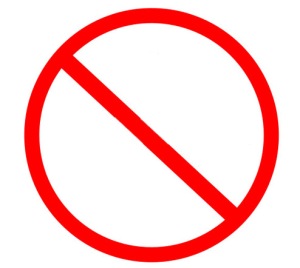Bidding farewell to something that doesn’t work for you should be an opportunity to affirm what is good in your life, and to celebrate moving forward.
For that to happen, though, you need to approach exits in a positive, productive way. It’s easy to find plus points to giving up cigarettes or getting out of a moribund relationship. Leaving a job, however, especially a decent job, can be tricky.
You may have mixed emotions. Change is daunting, giving up the security of a familiar situation can be stressful, people may question your choice. (Ignore them. They don’t understand and it isn’t your duty to explain.) For your own sake, think through your transition before you write that letter. Plan how you’re going to make the process of quitting work for you.

How to Quit Comfortably:
1. Check Your Contract – Be sure you know what your notice period is, rules about using holiday, confidentiality policy, gardening leave, etc
2. Write your resignation letter then wait – Take at least 24 between writing your letter and submitting it. Ensure it is clear, professional, error-free and neutral. This is not the place to rant about your colleagues or complain about your pay.
3. Stay productive – It’s tempting to slack off but frankly, staring at Facebook doesn’t make the day go any faster. Be professional, do your work well, if only for your sake.
4. Be present – Once you’ve made the decision to quit it is natural to focus on the future. By all means start laying the groundwork for your next step, whether it’s researching a new industry or planning a DIY project, but don’t try to micro-manage a future that isn’t here yet.
5. Decide what to take with you – Not your favourite mug, or the contents of the stationary cupboard, but the intangibles. Every job, even (or especially) the bad ones can teach you something if you’re willing to learn. Identify and write down 10 positive things you can take from the role.
6. …And what to leave – Jobs are like relationships: bad ones condition you to accept being unhappy and set you up for more dissatisfaction. Figure out what frustrated you and use this awareness to avoid repeating negative patterns.
7. Detach from other peoples’ emotions – If your boss and colleagues are supportive, fantastic; if not, so what? This isn’t about them. Same goes for friends, partner, family, and acquaintances. You can acknowledge their views without getting emotionally invested.
8. Surround yourself with good things – Quitting can be tough so make the rest of your life easy. Socialise more (or less); exercise; go away for a weekend; do more of what you love.
9. Give feedback– As a quitter you have the privilege of speaking truth to “power” without repercussions. An honest exit interview is closure for you and an opportunity for your employer to make things better for your replacement.
10. Celebrate!








